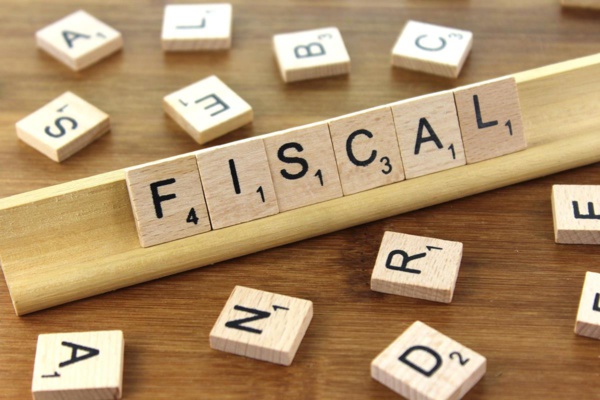The Moroccan government has implemented a tax reform in the 2024 budget. This reform aims to unify the VAT rate by 2026 and broaden the application of the tax to industries and services. As part of this measure certain consumer goods such as butter from animal milk, canned sardines and milk powder will be exempt from VAT.
Furthermore to promote energy generation the VAT on electricity will be reduced from 14% to 12% starting January 1st, 2024. Insurance companies are poised to benefit from this reform; the VAT reduction for services provided by brokers or insurance agents will also take effect on January 1st, 2024.
However there will be an increase in the tax rate on sugar by one percentage point to reach 8% at the beginning of 2024. Additionally changes are expected in the VAT rates for vehicles including cars and transportation services for both passengers and goods. Initially proposed increases in taxes on transportation and electricity by the government may also come into effect.
Highlights include the introduction of a new regime for calculating and paying your own VAT to the government. Instead of the government handling it directly, businesses will now take care of this process on their own.
Additionally, the reintroduction of the 60-month requirement for property that can be moved around and the desire to benefit from tax exemptions, you must now keep this property for at least 60 months. Other words, you must still retain ownership of the goods and utilize them for a specific duration in order to qualify for specific tax benefits.
Additionally, a requirement for security in order to enjoy the VAT exemption on capital goods, to have access to the VAT on large assets or investments, now requires businesses to provide some form of security. This safety could be represented by a guarantee or collateral, these security measures would ensure that the company is in compliance with the necessary requirements to be eligible for the VAT exemption.
These actions are also enforced with penalties for missing the deadlines; the amount of these penalties is determined by the General Tax Code of 2024. The third section of the GTC covers both specific tax duties related to tax, personal income tax, VAT and registration all aimed at promoting corporate accountability.
Prior to the tax reform in Morocco corporate accountability encountered hurdles due to the absence of defined and strict mechanisms for tax obligations. The absence of precise direct penalties for tax infractions resulted in inconsistencies that could encourage non compliance within businesses. Furthermore the lack of a framework outlining specific penalties, for corporate tax, personal income tax, VAT and registration duties led to confusion.
This environment may have led to the perception of leniency, which encouraged some organizations to disregard their tax obligations. The recent reform which included penalties for not complying with the enforcement deadlines and specific tax sanctions under the General Tax Code of 2024, was intended to address these issues.
By doing this, it attempts to enhance corporate responsibility, clarify the direction and promote a more transparent and accountable business climate in Morocco.
These tax changes aim to encourage people to donate to charity and support foundations, in science and medicine all while easing the tax load on individuals. Like consultants, workers such as laborers can now benefit from deductions on Social Security taxes providing relief. Artists see a drop in the tax rate giving them the opportunity to deduct a portion of their art related expenses from their income.
hesspress EN
Furthermore to promote energy generation the VAT on electricity will be reduced from 14% to 12% starting January 1st, 2024. Insurance companies are poised to benefit from this reform; the VAT reduction for services provided by brokers or insurance agents will also take effect on January 1st, 2024.
However there will be an increase in the tax rate on sugar by one percentage point to reach 8% at the beginning of 2024. Additionally changes are expected in the VAT rates for vehicles including cars and transportation services for both passengers and goods. Initially proposed increases in taxes on transportation and electricity by the government may also come into effect.
Highlights include the introduction of a new regime for calculating and paying your own VAT to the government. Instead of the government handling it directly, businesses will now take care of this process on their own.
Additionally, the reintroduction of the 60-month requirement for property that can be moved around and the desire to benefit from tax exemptions, you must now keep this property for at least 60 months. Other words, you must still retain ownership of the goods and utilize them for a specific duration in order to qualify for specific tax benefits.
Additionally, a requirement for security in order to enjoy the VAT exemption on capital goods, to have access to the VAT on large assets or investments, now requires businesses to provide some form of security. This safety could be represented by a guarantee or collateral, these security measures would ensure that the company is in compliance with the necessary requirements to be eligible for the VAT exemption.
These actions are also enforced with penalties for missing the deadlines; the amount of these penalties is determined by the General Tax Code of 2024. The third section of the GTC covers both specific tax duties related to tax, personal income tax, VAT and registration all aimed at promoting corporate accountability.
Prior to the tax reform in Morocco corporate accountability encountered hurdles due to the absence of defined and strict mechanisms for tax obligations. The absence of precise direct penalties for tax infractions resulted in inconsistencies that could encourage non compliance within businesses. Furthermore the lack of a framework outlining specific penalties, for corporate tax, personal income tax, VAT and registration duties led to confusion.
This environment may have led to the perception of leniency, which encouraged some organizations to disregard their tax obligations. The recent reform which included penalties for not complying with the enforcement deadlines and specific tax sanctions under the General Tax Code of 2024, was intended to address these issues.
By doing this, it attempts to enhance corporate responsibility, clarify the direction and promote a more transparent and accountable business climate in Morocco.
These tax changes aim to encourage people to donate to charity and support foundations, in science and medicine all while easing the tax load on individuals. Like consultants, workers such as laborers can now benefit from deductions on Social Security taxes providing relief. Artists see a drop in the tax rate giving them the opportunity to deduct a portion of their art related expenses from their income.
hesspress EN



 الدكتوراه في قانون العقود والعقار ـ إشراف الدكتور إدريس الفاخوري
الدكتوراه في قانون العقود والعقار ـ إشراف الدكتور إدريس الفاخوري 













 Tax transformation in Morocco: A new era for fiscal policy
Tax transformation in Morocco: A new era for fiscal policy













